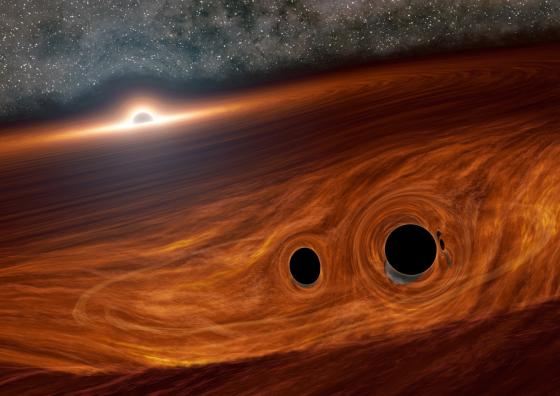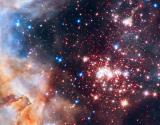ICCUB astronomer Mark Gieles talks to journalist Esther Sánchez, in the science section of the Carne Cruda Ràdio about the recent observation of the most massive black hole ever detected with gravitational waves.
The international collaboration formed by the gravitational wave detectors LIGO (in the United States) and Virgo (in Europe) announced earlier this month the detection of two very massive black holes merging. The result of this fusion is a black hole with a mass of 142 solar masses, which makes it the most massive black hole ever detected through gravitational waves. The observation occurred in May 2019, and scientists have explained and analyzed it in two scientific articles published at the same time in the journals Physical Review Letters and The Astrophysical Journal Letters.
You can listen to his intervention on the program's podcast, from minute 29.40
Mark Gieles is an ICREA professor and an astronomer at the Institute of Cosmos Sciences, where he researchers about the formation and evolution of stellar clusters, with the aim of deepening our knowledge about the stellar initial mass function, black holes, gravitational waves and the dark matter distribution in galaxies. He has also proposed models to detect black holes in star clusters, through data obtained with the Gaia satellite and other space surveys, and models of the formation of these same star clusters.



